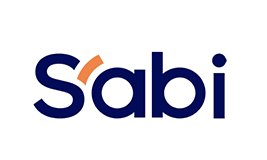Physical Address
60 Ekwema Cres, Layout 460281, Imo
Physical Address
60 Ekwema Cres, Layout 460281, Imo

Nigerian startup Sabi has laid off about 20% of its workforce as it shifts its business focus. The company, which started in 2020 as a B2B marketplace serving Africa’s informal trade sector, is now concentrating on commodity exports. This change means Sabi is moving away from its original model that helped merchants and resellers with tools to grow their businesses, and instead is focusing on the growing demand for traceable and ethically sourced commodities.
Sabi had a strong start, raising $38 million in Series B funding in 2023. At that time, it had over 300,000 merchants on its platform and handled $1 billion in annual gross merchandise value. However, like many other African B2B e-commerce companies, Sabi has faced challenges such as thin profit margins and high costs, making it harder to sustain its original business model.
Read Next: Starlink Resumes Nairobi Sign-Ups After Pausing for 7 Months
To adapt, Sabi launched a new platform called TRACE (Technology Rails for African Commodity Exchange) last year. TRACE helps track the origin of African commodities like minerals and crops to meet global buyers’ needs for ethical and transparent sourcing. This is especially important as countries in Europe and the US now require proof that raw materials are sourced responsibly, avoiding so-called “blood minerals.”

As part of this pivot, Nigerian startup Sabi laid off about 50 employees, which is roughly 20% of its workforce. The company described this as a difficult but necessary decision to focus resources on the parts of the business with the most demand. Sabi expressed gratitude to the departing staff, acknowledging their important contributions to the company’s growth.
Sabi’s new focus on commodity exports is already showing promise. The TRACE platform is tracking over 50,000 tonnes of commodities from countries including Nigeria, Tanzania, Zambia, and Zimbabwe. The company now exports about 20,000 tons of minerals and crops each month, targeting global customers who value supply chain transparency and environmental, social, and governance (ESG) compliance.
Read Next: Flutterwave Enhances Support in Cameroon with Fully Licensed Digital Payment Services
Despite the layoffs, Sabi remains committed to its mission of transforming how the world sources products from Africa. The company believes this shift will position it for long-term success by building scalable and responsible supply chains. Nigerian startup Sabi’s layoff and pivot reflect a broader trend in the African tech and e-commerce space, where companies are adjusting to market realities and focusing on more sustainable, high-margin business areas.
Nigerian startup Sabi lays off 20% of its workforce as it pivots from a broad retail-focused platform to concentrate on commodity exports and traceability. This strategic move aims to meet rising global demand for ethically sourced African commodities, ensuring Sabi’s future growth and relevance in the market.
Was this information useful? Drop a nice comment below. You can also check out other useful contents by following us on X/Twitter @siliconafritech, Instagram @Siliconafricatech, or Facebook @SiliconAfrica.